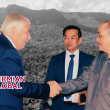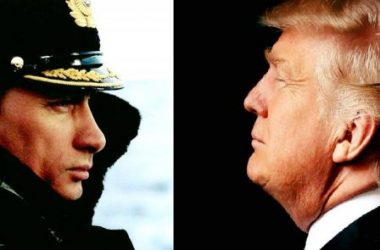I had the chance to visit India’s Foreign Service Institute(FSI) last September as part of the ASEAN-INDIA Students Exchange Program in the capital of the country, New Delhi. Foreign Service Institute (FSI) is the institute in New Delhi where Indian Foreign Service officers are trained. It was established by the Government of India in 1986 primarily to cater to the professional training needs of the trainees of the Indian Foreign Service and Ministry of External Affairs.
On 7th September 2014, the delegates involved in the ASEAN-INDIA Students Exchange Program was invited to FSI as part of the program tentative. Upon our arrival, we were greeted by the officer of the institute and were brought to their main auditorium for a session with the former ambassador of India, Mr Shri Amitava Tripathi. The session was entitled “ASEAN-INDIA : Progress and Prosperity ” . Mr Shri starts with the introduction of India as among the world oldest civilization. Due to this , the impact of India goes beyond its physical border. With 25 million diaspora all over the globe and strategic geographical location, India had played an important role in shaping the modern world. During the colonial era, almost 27 % of the global Gross Domestic Product (GDP) comes from Indian subcontinent which is the present India,Pakistan and Bangladesh. The unique nature of India’s independence struggle which is through non-violence movement lead by the late Mahatma Gandhi had set an example to other independence movement throughout the world.
The speaker continues by mentioning about the pivotal role that India had played in the world through G20 and Commonwealth. India’s agenda at the G20 Summits is driven by the need to bring in greater inclusivity in the financial system, to avoid protectionist tendencies and above all to ensure that growth prospects of developing countries do not suffer. India, as a co-chair of Framework Working Group on Strong, Sustainable and Balanced Growth, tried to refocus the energies of the group towards growth, jobs, fiscal consolidation, rebalancing demand from the public sector to the private, and to risks arising from internal imbalances within the Eurozone. India is the largest member state of the Commonwealth, with nearly 60% of the total population of the association. It is the fourth largest contributor to the Commonwealth budgets and programs and it provides the largest number of technical experts engaged by the Commonwealth Fund for Technical Cooperation extending assistance to developing Commonwealth countries after the UK.
Going deeper into the foreign affairs, Mr Shri stated that India’s foreign policy had been shaped by the imperialism and colonialism that had happen across the history of the nation. Mr Shri Amitava had rejected the notion of level-playing field that is being champion by big countries nowadays. Some multinational corporation GDP were even bigger than some countries as he said. The move by several big player of the industry would severely affects mostly developing countries, instead of developed countries. For example, India produces 60% of the world generic drugs and this will be severely affected if the new proposal of the intellectual property rights law will be accepted by other countries, especially those whom are part of TPPA. The same thing applies when the world wants to talk about controlling climate change. He insists that the responsible between countries should be differentiated. The Western countries had polluted the world first for 150 years during the industrialization era so they should be more accountable for whatever that is happening in today’s world. India went ahead with their nuclear test in the year 1998 because they disagreed with the 5 superpower countries. However, he strictly mentioned that India will not be the first user unless they been attacked first. He also mentions that nuclear exchange between India and Pakistan can cause over 2 billion deaths and may cause nuclear winter to the world.
Touching about the INDIA-ASEAN relations, since the inaugural of India’s Look East Policy in 1990s, India’s relationship with ASEAN remains
At the end of the session, Mr Shri mentioned that the key to prosperity is the peaceful China and India. He stressed out that Asia had always adopt the light approach to maintain peace and friendship and avoid conflicts. He hopes that the relationship between India and ASEAN will continue to be strengthened in the future.








